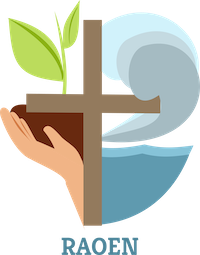The Indigenous Peoples’ Knowledge and the Sciences: Combining traditional knowledge and sciences for resilience to address climate change, biodiversity loss, food security, health workshop, held on 14 to 15 March at the Vatican, gathered 63 participants from 33 countries that included indigenous leaders from many Indigenous Peoples’ socio-cultural regions, scholars, knowledge holders, scientists from various disciplines, and UN representatives.

Organized by the Pontifical Academy of Sciences (PAS) and the Pontifical Academy of Social Sciences (PASS), the conference sought “to build bridges between the views and knowledge systems of diverse Indigenous Peoples and diverse science communities to explore new opportunities for solutions to the global challenges of resilience to climate change, biodiversity loss, and food systems problems, and on developing local solutions that can have global benefits.” Opportunities for dialogue were also facilitated among Indigenous Peoples and the science community on how ethno-ecological knowledge can play an important role in developing local solutions that can have global consequences.

In the workshop’s Final Statement, the key insights and specific calls to shift perspectives and drive action are:
- Recognition and dialogue – recognizing and valuing Indigenous Peoples’ knowledge, recognizing historical and ongoing rights violations against Indigenous Peoples, reframing philosophical and epistemic perspectives, enhancing dialogue among Indigenous Peoples and scientists, and fostering local and global connections through the “braiding” of Indigenous Peoples’ knowledge and sciences.
- Collaborative policy and decision-making involving Indigenous Peoples and scientific communities – establishing new science policy approaches, enhancing international policies to uphold the rights of Indigenous Peoples, strengthening national and sub-national policy and rights, combating educational segregation, and promoting inclusive decision-making.
- Critical action areas for collaboration in biodiversity, food, climate, and health – supporting Indigenous Peoples’ knowledge for biodiversity and a healthy planet, addressing food and nutrition challenges through the collaboration of indigenous and scientific communities, valuing and making use of Indigenous Peoples’ health and pharmaceutical knowledge, operationalizing Indigenous Peoples’ knowledge for climate and macro-environmental action, and promoting ethical partnerships and research funding and future engagement by global academies.

Pope Francis gave his address to the workshop participants and said that the “workshop represents an opportunity to grow in reciprocal listening: listening to Indigenous Peoples, in order to learn from their wisdom and from their lifestyles, and at the same time listening to scientists, in order to benefit from their research.”
The workshop booklet can be accessed here and the Final Statement here.


